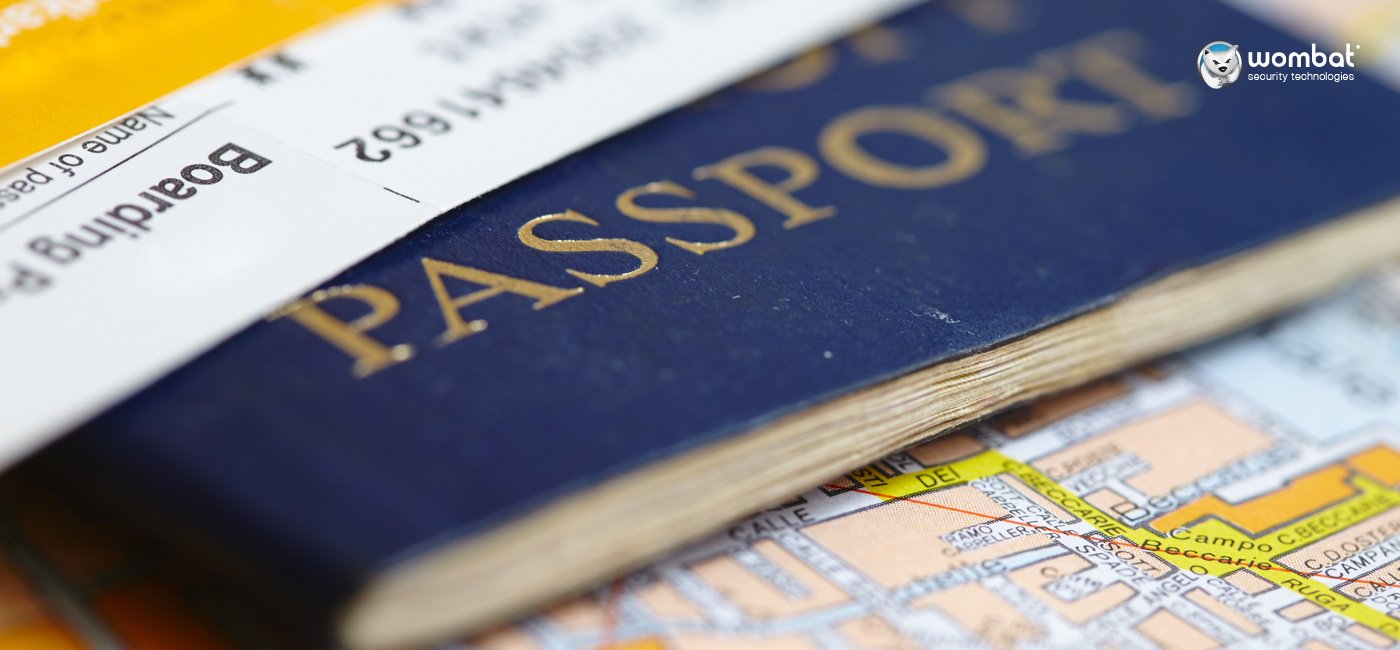Last updated: May 2, 2018

In an earlier post, we offered you cybersecurity tips to keep in mind when you travel. Most (if not all) of those tips will serve you well on any kind of trip — business or pleasure, local or long distance. But there are special considerations when traveling internationally, and it’s important to keep these distinctions in mind.
How Might International Travel Differ from Domestic Travel?
Familiarity is the real difference between domestic and international travel. In your home country, you are likely to know the laws, resources, and channels that can help you should you experience loss or theft of personal or business devices, data, and other valuable possessions. And during domestic travel, proximity is on your side; following up with an airline, hotel, law enforcement officials, or other establishment is likely to be easier if you’re nearer to your home base.
These conveniences generally don’t exist when traveling internationally. Laws and regulations can vary significantly from country to country, state to state, and even city to city. Here are some differences you may find when visiting a non-native country:
- Government officials could have license to review your electronic devices and duplicate the content stored on them.
- Use of encryption may be forbidden — and if you are caught using it, you could face criminal charges.
- Use of https, virtual private networks (VPNs), and certain websites may be blocked or prohibited.
- Seemingly private locations — including hotel rooms, taxis, and rental cars — could be monitored.
- Surveillance systems could capture phone or in-person conversations without your consent.
- Local colleagues may be required to report any discussions with foreigners.
Information security officers from the Global 2000 and beyond use our comprehensive, award-winning security awareness training portfolio to implement multi-lingual, continuous education programs for their employees around the globe.
Extra Safeguards to Consider When Traveling Abroad
Travelers are often targeted by criminals, hackers, and scam artists based on their nationality or job function. Given this — and the aforementioned points — it’s important to be as informed and aware as possible when you travel to an unfamiliar locale.
In addition to the travel tips we provided in our earlier article, keep these cybersecurity precautions in mind prior to and during your next trip abroad:
- Familiarize yourself with any local regulations regarding use of — and permissible access to — mobile devices, laptops, applications, and communication protocols.
- Be aware of any travel restrictions and security alerts. The U.S. Department of State provides an excellent online resource for warnings and alerts it compiles for its residents. It also includes a search function that allows users to gather information about specific destinations.
- Leave as many corporate and personal devices at home as possible. If you need to stay connected, approach your IT department about use of “disposable” or “clean” corporate-provided phones, laptops, or tablets.
- Strictly limit the data you store and take with you while traveling. If you won’t need it for the trip, don’t take it.
- Add a complex, unique login password to each device you do travel with. If using a disposable or clean device, change passwords and reformat drives when you return home.
- Assume any conversation or transmission you have could be intercepted and that encrypted data could be decrypted.
- Power off all electronic devices when not in use and turn off any unessential protocols (WiFi, Bluetooth, file sharing, etc.).
- Tape over, cover, or disable integrated laptop cameras and USB ports. Disable integrated laptop microphones.
- Never leave devices or sensitive materials unattended or unsecured in your hotel room. It's always best to keep these items with you; even in-room safes have known security flaws.
Preparedness activities should be on your itinerary ahead of any trip, but they are particularly important when planning an international excursion. Following the tips provided here could be the difference between successful cybersecurity and a device or data breach.











